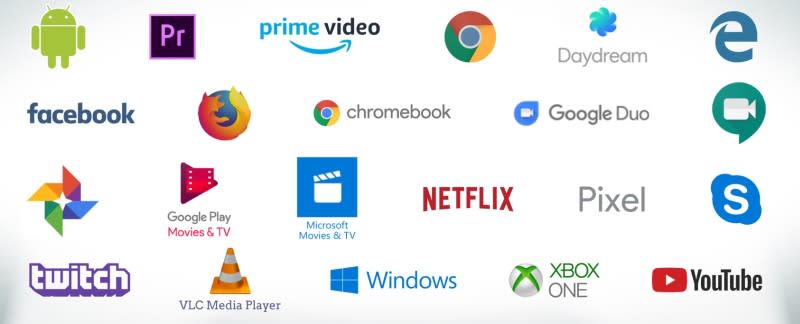Tech giants are lined up behind the 'royalty-free' 4K codec AV1
Get ready for a new video format rolling out later this year.

Usually, when a new video compression scheme arrives it takes so long before there's a combination of compatible hardware and content that its arrival is anticlimactic. Google, Apple, Netflix, Microsoft, Intel, Amazon and a host of other companies have taken steps to make sure AOMedia Video Codec 1.0 (AV1) moves a bit faster, and for several good reasons.
Today they're teaming up to announce the release of a 1.0 specification for AV1, and get the ball rolling on support for video creation, distribution and playback with the new format. With AV1, the group promises it can deliver 4K UHD video using 30 percent less data. That's great for high-res streams and should provide plenty of savings even for those on older hardware -- expect faster video startup time, less buffering and better picture quality.

As we move into the era of 4K video, HDR, VR and so many other forms of content, new compression technology will be required to make the most of each connection and keep every pixel looking its best. On the business end, these tech giants are trying to get around licensing fees and patents that have added to their costs and complexity of rolling out the tech currently needed to move HD and even 4K video around, like h.264 or the new HEVC. With AV1, they claim all the relevant patent holders are already involved and have agreed to make its use royalty-free, so there won't be the licensing pool problems seen last time around.

Google got the ball rolling with its VP9 codec years ago, then turned planning for VP10 into this team effort. Because it's been in the works for over three years already, and it has support from both the hardware side (Intel, Apple, ARM, NVIDIA) and the software side (Microsoft, Mozilla, Google), the hope is to get this technology rolled out quickly, with support in web browsers popping up first. As Microsoft exec Gabe Frost put it: "From browsers and operating systems to devices, apps, and gaming, AV1 will drive the transformation of higher-quality 4K UHD video and beyond for more screens and devices."
Then, content makers and distributors can jump in, with YouTube, Netflix and Amazon all ready to push the new format and make sure it has hardware support in next-gen devices like game consoles, TVs and set-top boxes. Netflix's director of streaming standards Mark Watson said: "We're pleased to see the broad interest in decoder support and excited to bring the benefit of better streaming quality to our
members in the coming year."
The first step happens today as the spec is announced, then at NAB in a few weeks there will be live demonstrations. We'll let you know once it's ready for home testing in the form of some 4K binge watching, which should start later this year.

